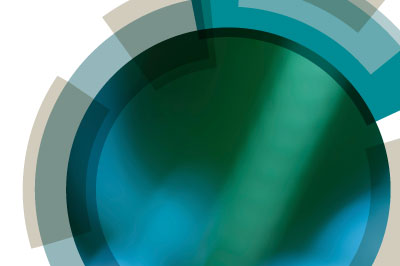Over the last three years, there has been an increase in the range of ionic liquids (ILs) utilised and significant advances in our understanding of the fundamental aspects of these materials. Therefore, the time is apt for Faraday Discussions to provide a foundation for future fundamental challenges and theories which need to be developed to move the subject area forward.
This meeting follows on from Faraday Discussion 154 held in 2011 and will aim to discuss a range of topics, such as ionicity, structure, electrochemistry, phase behaviour, and introduce areas which were only emerging at that point, such as interactions with liquid and solid interfaces.
ILs have been the focus of intense research over the last 20 years because of their remarkable potential for applications coupled to favourable environmental properties. ILs are also a medium whereby the nature of the complex interactions (Coulombic, van der Waals and hydrogen bonding) provides a liquid whose structure and properties can be tuned by the choice of the cation and anion wherein reactions are likely to be distinct in terms of activity and selectivity profiles compared with common molecular solvents.
Faraday Discussions have a special format where research papers written by the speakers are distributed to all participants before the meeting, and most of the meeting is devoted to discussing the papers. Everyone contributes to the discussion - including presenting their own relevant research. The research papers and a record of the discussion are published in the journal Faraday Discussions.
Find out more about the Faraday Discussions here.
This meeting follows on from Faraday Discussion 154 held in 2011 and will aim to discuss a range of topics, such as ionicity, structure, electrochemistry, phase behaviour, and introduce areas which were only emerging at that point, such as interactions with liquid and solid interfaces.
ILs have been the focus of intense research over the last 20 years because of their remarkable potential for applications coupled to favourable environmental properties. ILs are also a medium whereby the nature of the complex interactions (Coulombic, van der Waals and hydrogen bonding) provides a liquid whose structure and properties can be tuned by the choice of the cation and anion wherein reactions are likely to be distinct in terms of activity and selectivity profiles compared with common molecular solvents.
Themes
Structure and Dynamics of Ionic Liquids- Mesoscopic organization of ILs
- Neutron and X-ray diffraction studies of ionic liquids
- Simulation of structures (limitations and challenges)
- Electronic structure of ILs
- IL solvation
- IL mixtures
- Solvation dynamics
- Transport properties
- Relaxation pathways
- Phase diagrams of ILs and their mixtures with other fluids
- Critical properties of IL solutions
- Gas absorption
- Predicting IL properties
- Solvation thermodynamics
- Electrochemical theory
- Electron and ion transport in ILs
- Battery applications
- Fuel cells
- Electrodeposition and reactions
- Electroanalytical aspects
- IL thin films
- Electrode interfaces
- Surface tension of ILs
- IL-solid (polymers, carbons, oxides and metals) interactions
- Modelling of interfaces
- Mesoscopic interfaces (emulsions, micelles, reverse micelles)
Format
The Faraday Division have been organising high impact Faraday Discussions in rapidly developing areas of the physical sciences, with a focus on physical chemistry and its interfaces with other scientific disciplines for over 100 years.Faraday Discussions have a special format where research papers written by the speakers are distributed to all participants before the meeting, and most of the meeting is devoted to discussing the papers. Everyone contributes to the discussion - including presenting their own relevant research. The research papers and a record of the discussion are published in the journal Faraday Discussions.
Find out more about the Faraday Discussions here.









